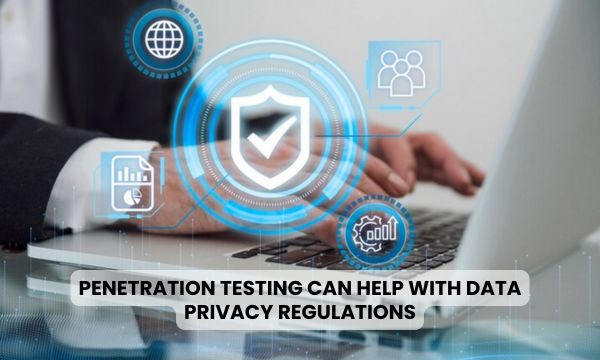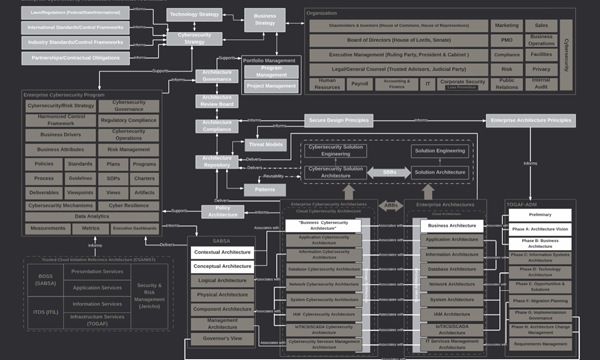
In an era when data breaches make headlines almost daily, compliance with data privacy regulations like the General Data Protection Regulation (GDPR) and the Health Insurance Portability and Accountability Act (HIPAA) is not optional—it’s a necessity. Organizations, particularly those in sensitive sectors like healthcare and government, are under constant scrutiny to protect personal data.
One of the most effective ways to ensure compliance and safeguard sensitive information is through penetration testing (pentesting) and Vulnerability Assessment and Penetration Testing (VAPT) services. In this blog, we’ll explore how pentesting aligns with data privacy regulations, helps organizations avoid costly penalties, and mitigates the risk of breaches.
Understanding Data Privacy Regulations: GDPR, HIPAA, and More
GDPR: Protecting Personal Data in the EU
The GDPR governs the processing and protection of personal data for individuals within the European Union (EU). It applies to any organization—regardless of location—that processes the personal data of EU citizens. Key components include:
* Data Protection by Design: Ensuring that data protection is integrated into systems and processes from the start.
* Regular Security Audits: Organizations must regularly assess their security measures to protect data from unauthorized access.
* Penalties for Non-Compliance: Fines for GDPR violations can reach up to €20 million or 4% of global annual turnover, whichever is higher.
HIPAA: Safeguarding Healthcare Data in the US
In the United States, HIPAA regulates the protection of sensitive patient health information (PHI). Key requirements include:
* The Security Rule: This mandates that covered entities implement appropriate administrative, physical, and technical safeguards to protect the confidentiality and integrity of electronic PHI.
* Regular Risk Assessments: Healthcare organizations must conduct regular risk assessments and audits to identify potential vulnerabilities.
* Non-Compliance Penalties: HIPAA violations can result in hefty fines, reaching up to $1.5 million per violation category annually.
Other industry-specific regulations, such as FERPA (Family Educational Rights and Privacy Act) and PCI DSS (Payment Card Industry Data Security Standard), impose similar requirements on organizations that handle sensitive data.
How Penetration Testing Ensures Compliance?
Penetration testing and VAPT services are crucial for ensuring compliance with data privacy regulations. Here’s how regular security testing can help organizations meet these requirements and protect sensitive information:
1. Identifying and Remediating Vulnerabilities (GDPR Article 32, HIPAA Security Rule)
Both GDPR and HIPAA require organizations to implement measures to secure sensitive data. GDPR’s Article 32 mandates that organizations must ensure a level of security appropriate to the risks presented by data processing. Similarly, HIPAA’s Security Rule requires organizations to protect electronic PHI by identifying risks and vulnerabilities.
Pentesting provides a practical way to meet these requirements by simulating real-world cyberattacks to uncover vulnerabilities in systems, applications, and networks. By identifying weaknesses and addressing them, organizations can demonstrate their commitment to protecting personal data and maintaining compliance.
2. Data Breach Prevention and Response (GDPR Article 33, HIPAA Breach Notification Rule)
GDPR’s Article 33 and HIPAA’s Breach Notification Rule both require organizations to report data breaches within a specific timeframe. However, the best way to avoid these costly and reputation-damaging breaches is to prevent them in the first place.
Regular penetration testing helps prevent breaches by identifying and fixing security gaps before malicious actors can exploit them. Additionally, Red Team testing can simulate more sophisticated attacks, helping organizations prepare for Advanced Persistent Threats (APTs) that target critical infrastructure in industries like healthcare and government.
3. Ensuring Data Security by Design (GDPR Article 25, HIPAA Security Rule)
GDPR Article 25 emphasizes the importance of data protection by design and by default, which means that security must be built into the core of an organization’s processes and systems. HIPAA also requires covered entities to ensure security from the ground up.
Penetration testing can be conducted during the early stages of application development and system deployment to ensure security controls are implemented correctly. By identifying vulnerabilities at this stage, organizations can integrate stronger safeguards and demonstrate compliance with security-by-design principles.
4. Mitigating Non-Compliance Penalties
The penalties for non-compliance with data privacy regulations can be severe. Under GDPR, non-compliance can result in fines of up to €20 million, and HIPAA violations can reach $1.5 million per violation. In addition to financial penalties, organizations may also face lawsuits, reputational damage, and loss of customer trust.
By engaging in regular penetration testing and VAPT, organizations can reduce the risk of non-compliance and avoid these steep penalties. Demonstrating proactive security measures can also serve as a mitigating factor if a breach does occur, potentially reducing the severity of any fines or penalties.
Why Healthcare and Government Sectors Are Particularly at Risk?
Healthcare Sector: Safeguarding PHI
The healthcare industry is a prime target for cybercriminals due to the high value of Protected Health Information (PHI) on the black market. A 2022 report by IBM revealed that the average cost of a healthcare data breach is $10.93 million, making it the most expensive industry for breaches. Furthermore, failing to comply with HIPAA can result in severe financial and legal consequences.
Pentesting in healthcare ensures that vulnerabilities in electronic health records (EHR), medical devices, and hospital networks are identified and addressed before attackers can exploit them.
Government Sector: Securing Citizen Data
Government agencies manage vast amounts of sensitive data, including personal, financial, and legal information about citizens. As a result, they are frequent targets of Advanced Persistent Threats (APTs) and state-sponsored attacks. Compliance with data privacy regulations, such as GDPR for EU-based government bodies, is critical to maintaining the security and privacy of this data.
Red Team exercises for government agencies simulate the tactics used by sophisticated adversaries, helping to identify weaknesses in incident response protocols and ensuring compliance with regulations.
Conclusion: Stay Ahead of Data Privacy Regulations with Penetration Testing
Compliance with data privacy regulations like GDPR, HIPAA, and other frameworks is an ongoing process that requires vigilance, proactive risk management, and continuous improvement. Penetration testing and VAPT services play an essential role in helping organizations identify vulnerabilities, prevent data breaches, and meet regulatory requirements.
For industries like healthcare and government, where sensitive data is a prime target, regular security testing is crucial to avoid non-compliance penalties and protect against devastating breaches.
Is your organization fully compliant with data privacy regulations? Contact us today to learn how our penetration testing services can help you protect sensitive data and avoid costly non-compliance penalties.
Comments
No Comments Found.
Search Here



